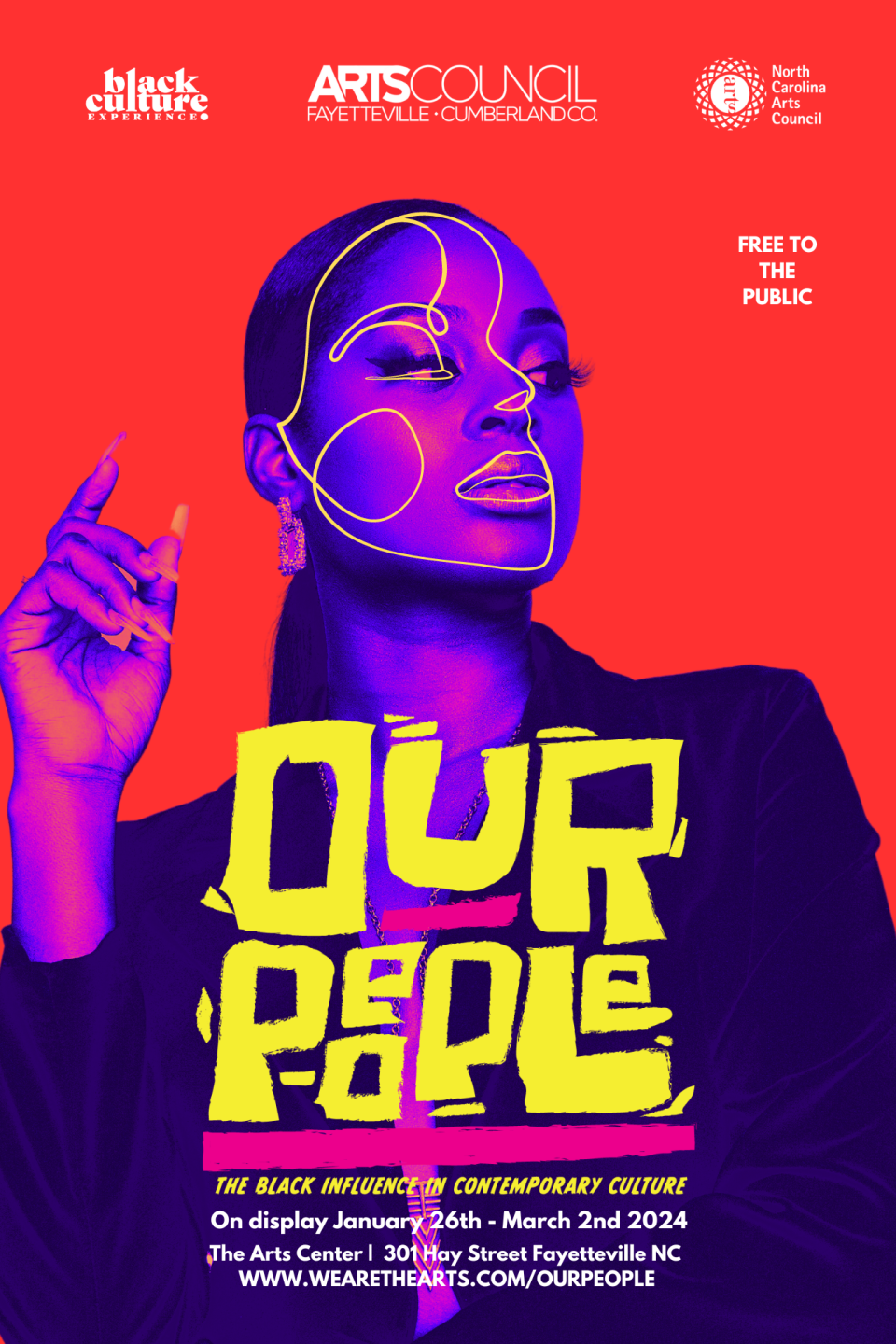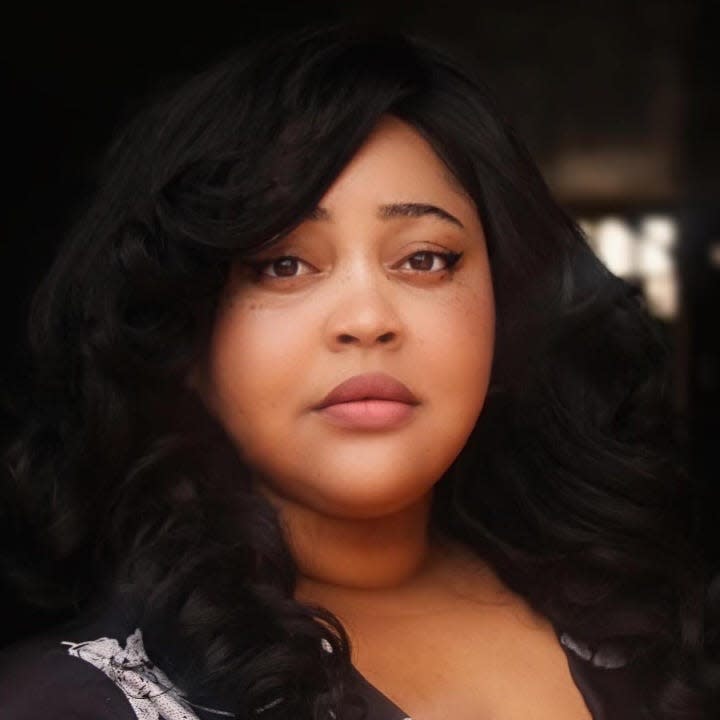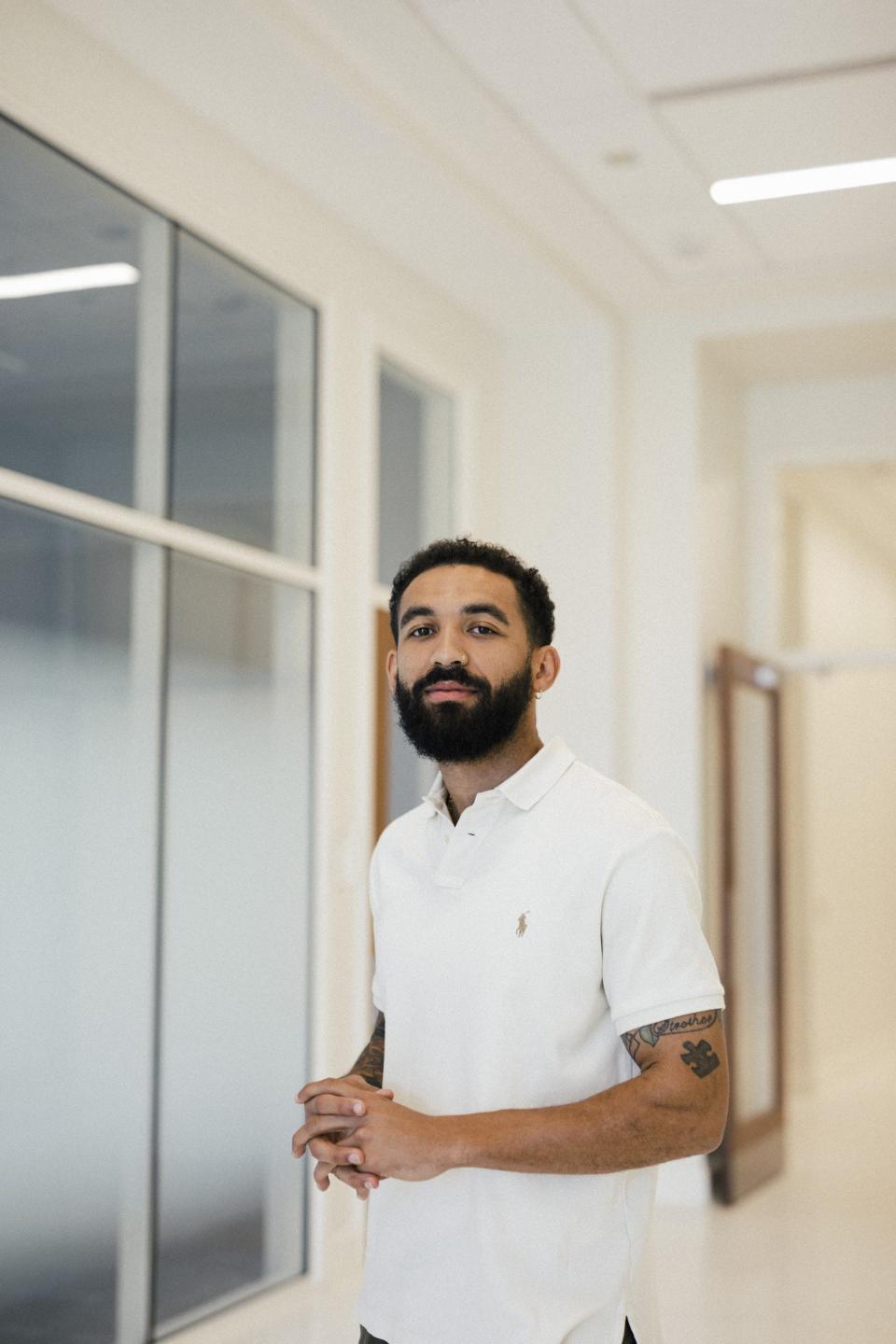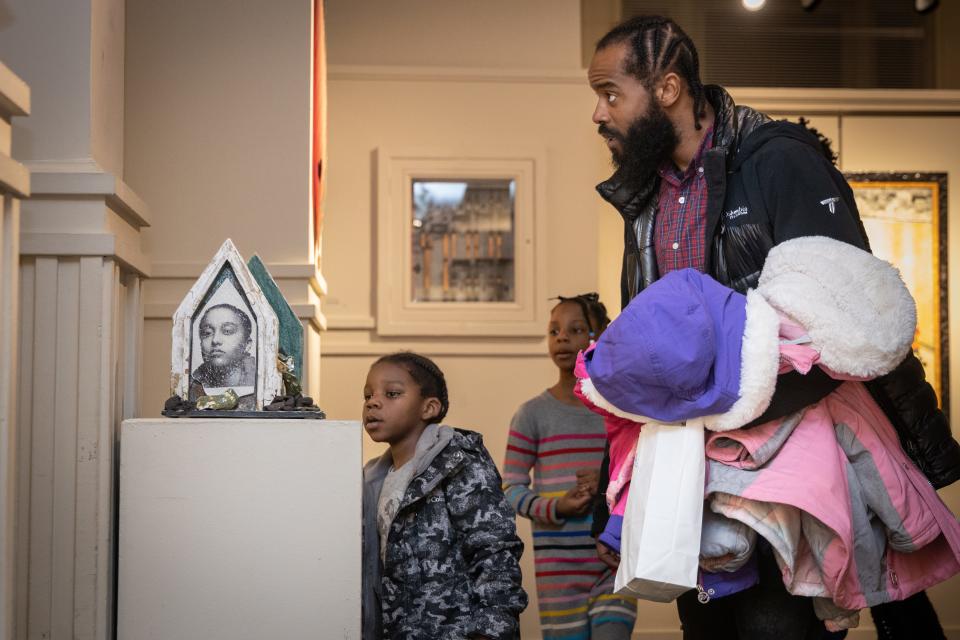'Our People,' celebrates Black art — but artists may not necessarily be Black. Huh?
Will an upcoming Black art show at the Arts Center Gallery downtown highlight the work of Black artists — or Black artists plus everyone else?
A Facebook announcement and an email blast by the Arts Council of Fayetteville-Cumberland County appeared to leave the question open and have led to some confusion and anger.
The exhibition, “Our People”: The Black Influence in Contemporary Culture,” is scheduled to run Jan. 26 to March 2, 2024.
The Arts Council on Facebook said the show, which is timed for Black History Month, was open to artists of “all nationalities,” which raised eyebrows — especially for a show of Black art titled, “Our People.”

The language is a departure from previous calls by the council for artwork that represents particular ethnic communities. Past calls were clear that the works were sought by people from that community.
For example, LatinXhibit, which ran this fall, called for artists of “Latin American descent,” according to the call for entry form. “Still Here, Still Native,” a 2022 exhibition of Native American art sponsored by the council, asked for art “from artists affiliated with any Native American tribe, nation-wide.”
The 2023 Black History Month-connected show, “Soul & Spirit,” sought works by artists of “African descent.”
Pushback from the community
Several people challenged the Arts Council on its Facebook page.
“If this is an exhibit for Our People, why include other nationalities?” asked Ja’Nelle Lunnermon. “Our story has already been depicted through the eyes and mindsets of those who are not Our people. And we see how negatively it has impacted our communities of this world for generations.”

Ayana Washington, founder of Book Black Women Inc., wrote an email a week ago to the council after she received an Arts Council email blast that included the language of “all nationalities.”
She was upset, especially as the owner of a business geared toward Black women, she said. Washington said she likes the people at the Arts Council and has received grant money for her own projects through the organization.
Spotlight on Fayetteville's future: The Fayetteville Observer’s Future Black History Makers visit the Arts Center Gallery
She said she had hoped the situation could be remedied by the council in-house before it broke out to the wider public. But after receiving a response from the grants department and a promise they would pass her concerns along, she did not hear anything, she said.
“They have been very helpful,” Washington said of the council. “But right is right and wrong is wrong.”
Artist and professor Dwight Smith, who was co-curator of the council's 2023 Black History Month-themed show, “Soul & Spirit,” said he did not have any involvement with the current show and was not contacted by the Arts Council.
“We would never have agreed to this,” he said.
Curator: ‘That post was not made by me’
Collyn Stother, who is Black, is the contracted curator for “Our People,” which he said on Wednesday is meant to highlight how Black people influenced just about everything in contemporary culture. He said the show is open to “all artists,” but he does not like the language “all nationalities” and said that he reached out to the Arts Council after he saw the Facebook posts.
“That post was not made by me,” he said. “I’m not directly in charge of marketing.”
He said the focus of “Our People” will be on “giving Black people their flowers.” He said the artworks would be judged by a diverse panel of three distinguished jurists, all of whom are Black.

Strother formerly worked for a year at the Arts Council as creative manager. He was the lead artist in the Black Lives Do Matter mural that encircles the Market House downtown.
Strother said the “Our People” show will emphasize artists who are “Black people, or people who are multi-race, or Black diaspora.” But he said it is open to all artists because aspects of Black culture can sometimes be captured by others.
“Say, I have a picture of my family eating,” he said. “But one of my friends is Asian. He takes a photo. I cannot necessarily take credit for that photo because I did not take it.”
Arts Council walks back language
By Wednesday, the Arts Council had walked back the language of “all nationalities,” scrubbing it from its Facebook post. It was also gone from an online call for entry for “Our People.”
In its comments section on its Facebook, the council thanked people for feedback on “Our People” and said it had recruited a talented person of color and former employee, who is Strother, to curate the show.
“As is our practice with curators, we allowed Collyn to craft the call for art and express his vision,” the statement said. “As such, it would be inappropriate for us to speak on Collyn's behalf now. However, he plans to share his vision and thoughts on 'Our People' in his own words soon and has given us permission to reshare that on his behalf.”
Bob Pinson, Arts Council director, in an email referred further comment to Strother and Antonio Renteria, the council director of operations, who is managing the exhibition.
But Pinson added: “We realized very quickly that the wording used on the original call for (art) that included ‘all nationalities’ did not accurately reflect what the exhibit was about and was being taken in the wrong context.”
Inadequate response?
Several people found the Arts Council’s Facebook response inadequate.
Among them was Fayetteville City Councilman Mario Benavente, who wrote in the comments that there were still unanswered questions.
“I don’t think this response answers why for Indigenous art exhibits the criteria was consciously narrow and that same consideration is being vacated in this instance,” he said. “At this point articulating the difference is necessary.
“At least so people can understand the problem and avoid it moving forward.”
Black History Month shows a centerpiece
The “Our People” exhibition will be displayed at the Arts Center Gallery at 301 Hay St, which is also home to the Arts Council staff. The show will include an award pool and honorable mentions for participants, the call for entry page at the website Cafe states.
Artists who wish to have their work considered, will be asked to submit samples and pay a $15 entry fee. Online submissions will be accepted until midnight of Dec. 26.

The Arts Council’s Black History Month exhibition is typically one of several centerpiece events the nonprofit organizes each year.
This year's exhibition, “Soul & Spirit,” featured nationally recognized artists and works that explored Black joy.
Among guests for the show were elementary school students who were part of the inaugural class of Future Black History Makers, which is sponsored by The Fayetteville Observer.
Strother said the Our People exhibition would be "something different" for the council.
"It's gonna involve a lot of pop art because one of the criteria is contemporary pop, Black art," he said. "It is forward-looking ... pieces that speak more to the modern era, more to pop culture, more to the future of what art is turning into."
Myron B. Pitts can be reached at mpitts@fayobserver.com.
This article originally appeared on The Fayetteville Observer: Fayetteville Arts Council listing for Black art show stirs confusion

